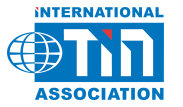The OECD Due Diligence Guidance 2016 (v3)
The OECD Due Diligence Guidance for Responsible Supply Chains of Minerals from Conflict-Affected and High-Risk Areas was developed in 2010 by a multi-stakeholder working group of industry, government and civil society members. The guidance is a series of voluntary recommendations for companies which suggest how management systems, source and risk information, audit and transparency of reports can make sourcing in higher risk areas possible and sustainable. This is explained in ‘5 steps’ which become necessary if an initial ‘red flag’ assessment highlights concerns or uncertainty.
The guidance is flexible and can be adapted as appropriate to local situations and company size but envisages that the standards outlined in Annex II of the Guidance will be adopted by the supply chain. The focus of the Guidance is avoiding contributing to human rights abuses, conflict or other risks such as money laundering. The OECD Guidance is referred to, or is the basis of, national legislation on minerals in many jurisdictions.
In the OECD Guidance, conflict-affected and high-risk areas (CAHRA’s) are; ‘identified by the presence of armed conflict, widespread violence or other risks of harm to people. Armed conflict may take a variety of forms, such as a conflict of international or non-international character, which may involve two or more states, or may consist of wars of liberation, or insurgencies, civil wars, etc. High-risk areas may include areas of political instability or repression, institutional weakness, insecurity, collapse of civil infrastructure and widespread violence. Such areas are often characterised by widespread human rights abuses and violations of national or international law.’
The International Tin Association contributed to the drafting of the guidance and remains on the OECD Multi-Stakeholder Governance committee to date. The Guidance has remained generally unaltered since original publication but was updated in 2016 in order to emphasise that due diligence is expected on all minerals, in all areas of the world, not on for 3T’s from Africa.
For further information or to discuss participation please contact [email protected].

